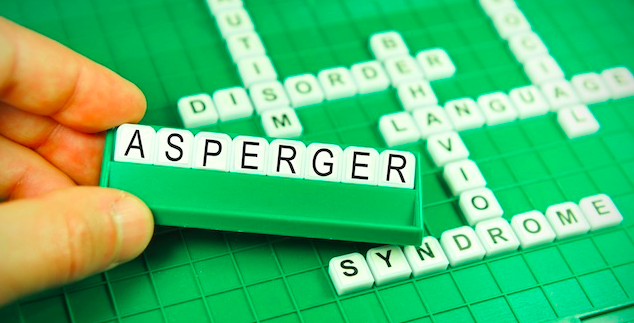 aNewDomain — Asperger’s syndrome and especially autism are hot topics right now. People crank out articles on these topics at a furious rate and suddenly everyone is an expert. The blogs are full of individual accounts from parents, caregivers, and even those of us who are, like me, both “on the spectrum” and able to express our opinions.
aNewDomain — Asperger’s syndrome and especially autism are hot topics right now. People crank out articles on these topics at a furious rate and suddenly everyone is an expert. The blogs are full of individual accounts from parents, caregivers, and even those of us who are, like me, both “on the spectrum” and able to express our opinions.
Recently, I was reading an article from a neurologist who claims to do a lot of work with people who experience Asperger’s. It was meant to be sort of a user’s guide for our friends and relatives.
There was all the usual stuff: We’re too loud, we don’t know the social conventions, we don’t feel any empathy. This brain region and that one are not like yours. The best thing to do is to be forgiving and state your needs very explicitly. And so on.
This particular article contained only mildly offensive stuff. They were all the usual sorts of assumptions — that we’re all alike, that what we have is a disability, that the best way to respond to the disability is to talk to us real slow and loud.
I would have mentally just junked the article except for one thing: The author kept referring to people who experience symptoms of Asperger’s syndrome as “Aspis.”
Now this I find offensive.
Aspis is a word we use among ourselves. It’s not for you, dude.
And I found myself thinking, Whoa, dude. Slow it down there. That’s just a word we use among ourselves, when we’re together.
You don’t automatically get to use it.
Really starting in the late 1990s and early 2000s, people on the spectrum started to get together. To meet each other, hang out and offer mutual support. This kind of thing began happening in university libraries and dormitories, as well as running clubs and other kinds of places. The idea was to sort of reject the medical language that gets used about us and around us.
The idea was to value what we have rather than lament what you neurotypicals seem to think we’re missing.
What have we got? On average, higher than normal IQs.
 Why is this? It is largely due to the convention of calling it Asperger’s when the person is “high functioning,”” and calling it autism when the person experiences more significant impairments.
Why is this? It is largely due to the convention of calling it Asperger’s when the person is “high functioning,”” and calling it autism when the person experiences more significant impairments.
But when I sit down with a group of Aspis, whatever the reason, I know I’m sitting with a smarter-than-average crowd of humans. We also tend to have obscure, narrow interests. Maybe it’s trains, or World War II uniforms, or NASA missions. Bronzeworking, kite flying, hawking, drains and wheels are all things I’ve seen us take on as interests.
We’ve also got a tendency to know more about people, society and convention than other folks are really comfortable with.
See, we don’t get the social rules implicitly like you most likely do. I was still getting called for offsides on the football pitch (Americans call it soccer, and I don’t know why) when I was sixteen, and that was with 10 years of football-playing experience behind me. Why? Because nobody had ever told me the rules. Everyone else just picked it up. I never did.
So we tend to understand the social rules explicitly, not implicity. That’s how we learn them.
Even when we go off inference, the tendency is not to do so implicitly, but more in a mental-note-taking fashion.
Careful, Neurotypical. Your behavior is always under scrutiny for consistency.
Unfortunately for you, that means your behavior is always under scrutiny for reasons of consistency.
If the rule is that we don’t talk about our personal interests over coffee but you’re dominating the conversation with football anyway, just count on hearing about it.
And anyway, “Aspi” is a word someone came up with to keep from having to always say “person experiencing some or all of the symptoms of Asperger’s syndrome,” or “high-functioning autistic” or anything else weird and cumbersome.
That last one I personally hate: it implies that all my other sisters and brothers on the spectrum are low-functioning.
Nevertheless, the Aspi term kind of stuck, because when we’re together, we don’t always like to think of ourselves as a group of people with a shared medical condition or psychiatric disorder.
We like to think of ourselves as people. Okay, people with some shared experiences and maybe some shared quirks, but people. And the point of hanging out is often just to have people around who are more understanding than average.
By the way, we really are studying you.
It’s hard to have a “disability” that strikes primarily at your interactions with other people.
I know I tend to replace social interactions with the giving of information, and I know how that makes me come off. I still can’t stop. I know I tend to obsess over things, and that if you get my attention you get all of it in perhaps a dysfunctional or even creepy way.
I really am studying you.
And yes, I know I can play that video game 36 hours longer than you — long, long past the time it has bored you beyond comprehension. I know I’ve burned out all my friends. I watch them get burned out.
It’s a lonely sort of thing, you know?
Anyway, this neurologist kept using the word Aspis recently. It got on my nerves. I had the sense he was using it to use me, to use us. To insinuate he had the sort of relationships with Aspis that he could use our private word in his clinical work, to sell services to parents.
These neuro guys are the very people we’re worried about. They’re the ones scaring parents about people with autism, medicalizing something we see as just part of the normal range of human experiences. Lumping us into one single group. Not quite so bad as when a known racist talks about their “black friends,” but it sure is kind of along that axis.
You know what?
Forget all the usual advice about how to “deal with” your Aspi friends. We’re just people. We need some allowances, the way you’d make allowances for a friend who doesn’t have use of their eyes or ears or legs, and those allowances are mostly that you try to forgive us for saying true things or the wrong joke at the wrong time or getting mad because you made a Star Trek reference when we were talking about Star Wars.
But you have to tell us what we’re doing wrong, tell us how you want to be treated, just the same as you’d tell everyone else in your life.
In the end, I don’t want to be like you. In the end, that’s the big problem I have with the neuro guy using the Aspi word: the neurologist’s job is to understand what parts of my brain are doing what things and call it abnormal or dysfunctional if it’s not just like the average person. And to think of ways to “correct” the “deficit.”
Screw that. I don’t want my deficits corrected. I want to be free just to be me, even if that means nobody wants to hang out with me or call up on the phone just to shoot the breeze.
I’m okay being lonely so long as I don’t have to be a clone.
It’s better to be lonely than a clone. My first real experience of this was in the first grade. First grade was my third year of school, because we bounced back between the UK and the U.S. So when I showed up to Chenoweth elementary school in California, I did so with an outrageous cockney accent. Nobody could understand a word I said.
The school put me into speech therapy to make that accent go away. At the time, I thought nothing of it. It didn’t occur to me until much later that an abuse had happened.
Remember, I didn’t know the rules back then. I had to puzzle them out, take it on authority that you are right and I am wrong.
And what I learned is that it’s unacceptable to be different or stand out. To speak with your own voice.
Consequently, today I sound like an American. Sometimes, just sometimes, I let the old English accent off the leash. I mostly keep it locked up these days because suddenly being English confuses people.
Don’t get me wrong. I don’t resent very deeply those hours spent in speech therapy with the kid with the cleft palate and the young man with Down Syndrome from down the road. It lead indirectly to the 15 years I spent working with adults who experience developmental disabilities.
But today I speak with a voice that is tailored carefully to sound like whoever is around. So much of me has been altered to fit what society wants. To be like you. I’m not willing to go any farther.
So no. Y ou can’t say “Aspi” if you’re a neurologist. You can’t say it unless you’re also an Aspi or talking to another Aspi about anything other than how to conform better to social expectations or what our limitations are.
That’s all I’ve got. I’ll stop calling you neurotypical if you stop calling me Aspi.
For aNewDomain, I’m Jason Dias.













First of all, it’s Asspie, not ‘Aspi’. Second of all, most asspies are dumbasses. Sure, every once in a while a smart one comes along. But no more often than smart NTs. And this joke of an article only serves to illustrate the “Poor me” attitude asspies have towards NTs. We’re not threatened by you anymore than you are by us. That’s just your oversized ego talking.